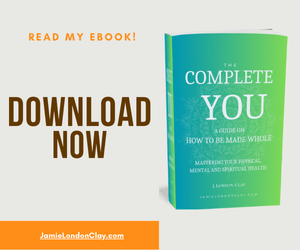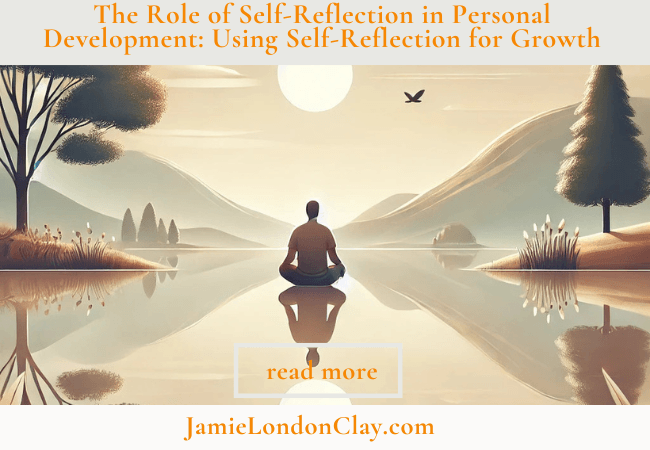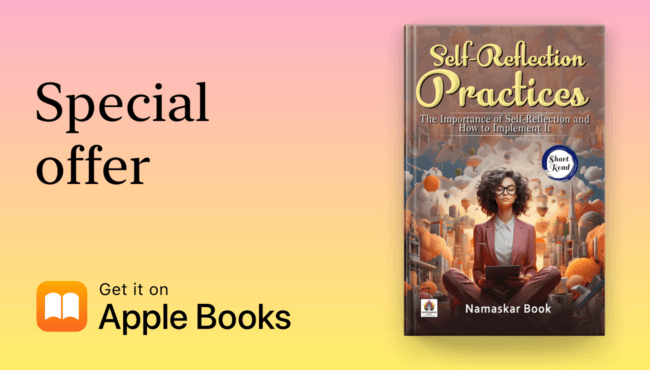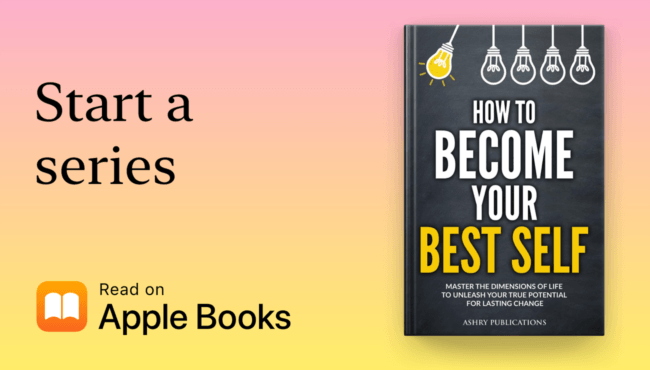
Examine how self-reflection boosts personal growth. It raises self-awareness, improves decisions, and fosters intentional growth. Learn practical strategies to incorporate self-reflection into your daily life.
The Role of Self-Reflection in Personal Development: Using Self-Reflection for Growth
In today’s fast-paced world, we must find time for self-reflection. It is key to personal growth. Self-reflection helps people understand their thoughts and feelings, builds self-awareness, and promotes growth. Very Well Mind says self-reflection is key to personal development. It lets people assess their strengths and weaknesses and find areas to improve.
The personal development industry has also grown. The self-improvement market is now worth USD 51 billion. This surge shows a growing awareness and desire to improve one’s life.
To learn more about the benefits and strategies of self-reflection, check these resources:
- Self-Reflection: Benefits and How to Practice
- The Power of Self-Reflection: Transform Your Life from Within
- The Science of Self-Reflection: Impact on Every Aspect of Life
These articles offer tips to help you use self-reflection to grow.
The Role of Self-Reflection in Personal Development
Imagine you’re at a crossroads in your life. Your Mind whispers a question deep inside: Where do I go from here? You pause and take a breath. The answer lies not out there but within your thoughts and experiences. Self-reflection is all about this moment. It’s a pause in the daily hustle. It connects you with your inner voice, the key to your true potential.
As a lifestyle blogger on holistic development, I often meet people seeking purpose. This quest seems ever more pressing in our fast-paced society. However, what tends to be less discussed is how powerful self-reflection can be in finding that purpose. Let’s unpack its role in personal development and the unique insights it can offer.
As we turn to daily self-reflection, we must stress its foundation: mindfulness. One must look inward but with a clear mind. One should learn from the past to navigate the uncertain future with intent. As you move to the next section, consider this: the mirror of mindfulness can show your true self. It can show not who you’ve been but who you can be.
The Mirror of Mindfulness: Cultivating Self-Awareness
Mindfulness isn’t a buzzword; it’s a portal to a profound understanding of the self. At its core, mindfulness is about complete presence. It means engaging with your thoughts, feelings, and experiences without judgment. When I teeter on the edge of self-reflection, mindfulness steadies my stance. It’s a practice rooted in ancient traditions yet relevant in our frenetic world.
Embracing mindfulness for self-awareness is akin to turning on the lights in a dark room. You start to notice your inner landscape. It holds recurring thoughts, echoes of emotions, and patterns of behavior. It’s about watching them with clarity and calmness. It’s not possible to remove the adverb.’ What’s prompting this emotion?” This isn’t navel-gazing. It’s a quest to know your motives.
The most straightforward mindfulness exercises can yield significant insights. Try an essential breathing exercise: focus on your breath’s rise and fall. Or try a body scan: pay attention to each body part and its sensations. These practices ground you in the present. They remove layers that block self-awareness.
Many individuals have used mindfulness to spark change, and their stories are numerous. I interviewed a former executive. Mindfulness helped her find a passion for social work. As she tuned in to her inner self, she realized her discontent with the corporate grind. It wasn’t stress but a longing for more meaningful work. Without mindfulness, she might not have reflected. So, she may never have pursued a career that helped many.
The following section will explore, using self-reflection techniques, the core of your identity. It builds on this foundation. These practices go deeper than daily mindfulness. They can help you understand who you are and who you could become.
Diving Deep: Self-Reflection Techniques for Core Identity Exploration
The mirror of mindfulness offers a surface view. Deep self-reflection uses techniques that explore one’s core identity. I want to guide you through some of the most impactful practices I have experienced.
Journaling is a cornerstone of self-reflection. It offers a rare chance to talk to oneself, which can unearth hidden thoughts and feelings. There’s something special about putting pen to paper; it makes the intangible tangible. Studies show that journaling improves mood and well-being, boosting mental health.
Meditation and visualization complement journaling by facilitating a deeper connection with the self. A JAMA Internal Medicine review found that, if used consistently, these methods can reduce stress and boost self-awareness. Meditation can bring peace to your routine; visualization lets you script your desired future.
Then, there are the pioneering techniques that evoke profound self-discovery. Solitude isn’t about being alone. It’s about embracing the silence to hear your inner voice. Talking to yourself, like an honest chat with an old friend, can reveal parts of your personality and help you face truths you’ve avoided.
No matter the methods you choose, consistency is key. Your practice must be intentional. A deeper self-understanding creates a wealth of knowledge. It supports your growth goals. Every small insight can spark momentous change.
From Insight to Action: Turning Reflection into Personal Growth
You’ve heard it said before: Knowledge is power. But in personal development, it’s more accurate to say that applied knowledge is power. Finding insights about yourself through self-reflection is not enough. The real value is using those insights to act. This is where we build the bridge from self-awareness to personal growth.
Start by reviewing your journal entries. Also, check for insights from meditation or discussions. Repetitive themes or strong emotions often show areas for growth. Once identified, set SMART goals: Specific, Measurable, Achievable, Relevant, and Time-bound. This framework ensures that your personal development plans are clear and actionable.
Next, create a plan of action. It could involve seeking new experiences, learning new skills, or changing certain behaviors. Remember, the transition should be sustainable. Start small. You can expand your efforts over time as you gain confidence and momentum. Reflective insights often test our comfort zones, and that’s where growth happens.
Let’s move on to the success stories. Consider individuals like Oprah Winfrey. She credits her success to self-reflection and its lessons. Winfrey has made personal growth a global phenomenon. She used insights from her life’s challenges to affect millions.
In conclusion, your Mind is a compass. It can guide you from insight to action. Trust it, act on it, and watch as the seeds of your reflective practice bear fruit in all areas of your life. Keep reflecting and acting; it’s a powerful force for growth.
Embracing the Reflection: Continuous Self-Growth and Its Impact
Self-growth doesn’t happen overnight. It takes dedication, time, and a willingness to face some truths about us. They may be uncomfortable. It’s a journey. But once you embrace regular reflection, it will become as routine as your morning coffee. It will be as invigorating.
The beauty of self-growth lies in its ripple effect. As you change, so do your relationships. You inspire those around you. Your dedication to growth sparks positivity. Communities thrive when they’re composed of individuals committed to self-improvement.
This continuous journey is also about leaving a mark—your legacy. Investing in your self-development benefits you and sets a precedent for others. Teaching self-reflection to those around you creates societal change. It ensures your impact goes beyond the personal.
To conclude, remember that self-reflection is more than a tool for personal development. It’s a powerful tool. If used with intent, it can shape your destiny and the world. Is your commitment to self-reflection the first step toward a profound legacy?
Self-reflection is a powerful tool. It boosts self-awareness, improves decision-making, and aligns one’s life with one’s values. It is a cornerstone of personal growth. It lets one step back, test, and take deliberate steps to become one’s best self. Have you explored how self-reflection can shape one’s growth?
Click here to buy my eBook, The Complete You: A Guide on How to Be Made Whole. This resource gives steps to reflect, set goals, and create change. It aims to support your growth and help you live with purpose.
Please visit my online store at jamielondonclay.com. It offers products that inspire personal growth, self-empowerment, and whole-person development. I may earn a commission on purchases through my blog’s links as an affiliate marketer. Your support allows me to share resources and create content for this community.
If this article inspired you, please subscribe to my blog, follow me on social media, and share this post. Your engagement keeps this community thriving and growing. I also encourage you to comment below. Your insights matter and contribute to the conversation.
For more empowering content, please subscribe to my YouTube channel. The adverb cannot be removed. I’m beginning to roll out content on my blog, so thank you for your patience as I grow this platform. Let’s go on this whole-person development journey together—one empowering step at a time.



